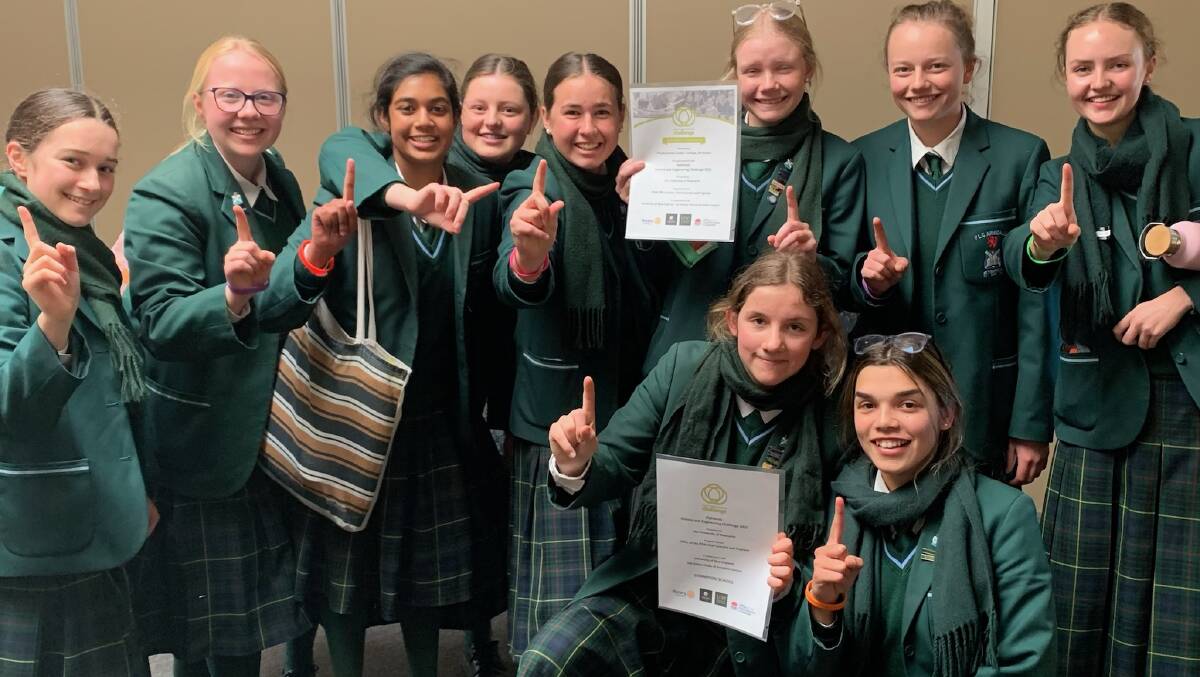Students from across the region tackled science and engineering challenges last week when the universities of Newcastle and New England partnered with Rotary for the annual Science and Engineering Challenge (SEC).
Subscribe now for unlimited access.
or signup to continue reading
The winning team included girls from Moree, Wee Waa and Walgett.
The PLC Armidale team beat school teams from Armidale, Guyra and Uralla to win first prize and confirm their spot in the state finals in Newcastle next month.
READ MORE:
Sophia Whibley from Moree, Caitlin Kable from Wee Waa and Mia Montgomery from Walgett, were part of the PLC Armidale Stage 5 team.
The event is part of a nationwide science, technology, engineering and mathematics (STEM) outreach program where students experience aspects of the disciplines they would not usually see in the school environment.
On Wednesday, PLC Armidale year 9 and 10 students participated in challenges that included bridge building, making a water turbine, solving electrical grid problems, designing rail networks, and building a Mars Rover at the Armidale Ex-Services Club.
"The day is designed, through fun and practical hands-on activities, to engage and inspire students in the areas of science, technology and engineering," said Kate Fittler, a science and mathematics teacher at PLC Armidale.

"Students participated in a range of problem-solving activities including design and building projects to other tasks requiring logical solutions.
" Our students thoroughly enjoyed the day and were excited by the possibilities of further studies in STEM. Our PLC Armidale girls took the lead and were placed first in the competition."
Principal Nicola Taylor said within PLC Armidale, it wasn't a choice of academics versus social, it was the opportunity for both, and engagement in STEM subjects starts from pre-kinder.
"Early learning experiences can build confidence and shape later choices with interest in the STEM subjects developing in the pre-school years, Mrs Taylor said.
"From first experiences to last - our focus is on girls as they play, grow, learn and lead. Our all-girl context allows the freedom to explore that fosters curiosity and exploration in areas of science and technology.
"Data from the Victorian Department of Education in 2021 revealed that girls attending all-girls schools were 85 per cent more likely to study advanced mathematics than those in co-educational schools, 79 per cent more likely to study chemistry and 47 per cent more likely to study physics."

